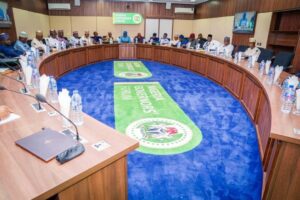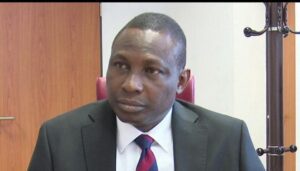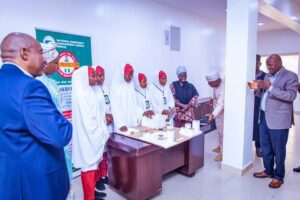
Mastering digital-age marketing communications skills (3)
By Goke Ilesanmi
Last week, we examined guidelines for the digital marketing communications team. We said adoption of the Digital Marketing Communications strategy means there must be effective collaboration among the Information and Communications Technology, Marketing and Corporate Communication Departments to be able to achieve an impressive digital marketing result and corporate profitability. We discussed guidelines for the team to achieve success.
Specialised analytics tools
There are specialised tools that organisations can use to monitor communication activities and gauge the effectiveness of their (marketing) communications tools on digital platforms, including their corporate websites. They are called ANALYTICS TOOLS. There are many ANALYTICS TOOLS available, both for free and for fee. But it is important to set clear goals upfront, so that you know what to analyse.
Popular free, off-the-shelf tools for aggregating social media accounts and doing basic analytics include: Seesmic and Hootsuite. Other analytics tools are available, include:Westminster Reputation Tracker: This is used as a tool to help plan for communications activity as well as helping us to plan communications activity). It is also used to assess progress of campaigns throughout the year.
Web analytics: Web analytics is essentially about looking at how your website is being used. It gives you a feel for how many visits your site gets over a given time period, how many of these visits are unique, what the most popular pages are, as well as a whole range of other information. From an evaluation perspective, with web analytics we can relatively easily find out the impact of communications activity.
Nigerian English usage and digital-age challenges of global understanding
Research shows that the problem of Nigerian English usage is depriving many organisations and individuals in Nigeria of the opportunity of enhancing their business or career prospects globally due to communication breakdown. That is, even though the world has become a global village with many opportunities, due to information and communications technology explosion, lack of global understanding of the so-called Nigerian English has not allowed organisations and individuals here to reap bountifully.
Negative language transfer: Another feature of Nigerian English is negative language transfer. This refers to errors arising out of directly transferring (transliteration) expressions from our mother tongue into English. Examples of these errors are “I am coming” when you are actually going; “Do you understand what I have been saying since morning” even when you started in the afternoon; “They are calling you” when it is only one person that is calling the person; “Yes, I wasn’t” when we agree with a negative statement, etc. The correct expression for “I am coming” is “I will be (right) back” when it is the case you are actually going. “I am coming” is direct translation of the Yoruba expression “Mo n bo”.
Lack of knowledge of dictionary short forms: Examples of these abbreviations are “n” for noun; “v” for Verb; “adv” for Adverb; “adj” for Adjective; “pron” for Pronoun, etc. Lack of knowledge of these short forms makes many people in Nigeria pluralise uncountable nouns like “Potential”, “Fallout”, “Legislation”, “Equipment”, etc., despite the fact that the symbol [U] which means “Uncountable” is placed against them in the dictionary. Also, the abbreviation “adj” is placed against a word like “Mediocre” to show it is an adjective. But lack of knowledge of what the abbreviation “adj” means makes most Nigerians use the word as a noun by saying “You are mediocres” The correct usage is “You are mediocre people”.
Wrong redeployment of meanings: This is another feature of Nigerian English. It is about misinterpreting the original meanings of the existing words of English Language. Examples of words that have their meanings wrongly redeployed in Nigeria are “Do-or-Die”, “Tout”, “Dowry”, “Minerals”, etc. “Do-or-die” is a positive idiom that means “Strong determination” (check a dictionary). “Tout” means “Marketer” or “Canvasser” not “Hooligan”. “Dowry” basically refers to the money and other property that a bride gives to the bride-groom not money that a bridegroom pays on the bride as wrongly used in Nigeria.
We wrongly use “Minerals” for “Soft drinks”; “Hot drinks” for “Hard drinks”; “Machine” for “Motorcycle”. We have also wrongly created the word “Send-forth” in place of the correct version “Send-off”; “Drainages” in place of the correct one “Drains”. Most Nigerian speakers of English wrongly say “Send-forth” instead of “Send-off”, probably because the adverbial particle/preposition “off” is considered negative. Similarly, we use “Do-or-die” negatively probably because of the negative word “Die”.
Overgeneralisation of rules of English: The verb “Realise” has the noun “Realisation”, we often overgeneralise the rule by wrongly thinking the noun from the verb “Vandalise” is “Vandalisation” instead of the correct noun “Vandalism”. Also, because we have the idiomatic expression “The best/worst is yet to come”, we overgeneralise this idiom when we are using “Yet” with “To”-infinitive verbs in other situations. We wrongly say “I am yet to go there” instead of “I have yet to go there”.
Most speakers of Nigerian English wrongly say “I am a staff of this organisation” instead of “I am a member of staff of this organisation”. They also wrongly say “I that is not afraid” instead of “I that am not afraid”; “Night vigil” instead of “Vigil”; “Wake-keeping” or “Wake-keep” instead of the correct version “Wake”. They say “Doctorate degree” instead of the correct version “Doctorate” or “Doctoral degree”; “Electioneering campaign” instead of “Electioneering”.
Final note
Organisations that want to succeed in this digital age must reinforce their Traditional Marketing Communications tools with innovative Digital Marketing Communications strategies so as to enhance their reputation online and offline and therefore boost their profitability.
PS: For those making inquiries about our CV/Profile Writing and Speech Writing Services; Political Persuasion and Presentation Course; General Public Speaking and Business Presentation Course; Professional Writing Course, etc., please visit the website indicated on this page for details.
GOKE ILESANMI (FIIM, FIMC, CMC), CEO of Gokmar Communication Consulting, is an International Platinum Columnist, Professional Public Speaker, Career Mgt Coach and Certified Mgt Consultant. He is also a Book Reviewer, Biographer and Editorial Consultant. Tel: 08056030424; 08055068773; 08187499425
Email: [email protected]
Website: www.gokeilesanmi.com.ng



